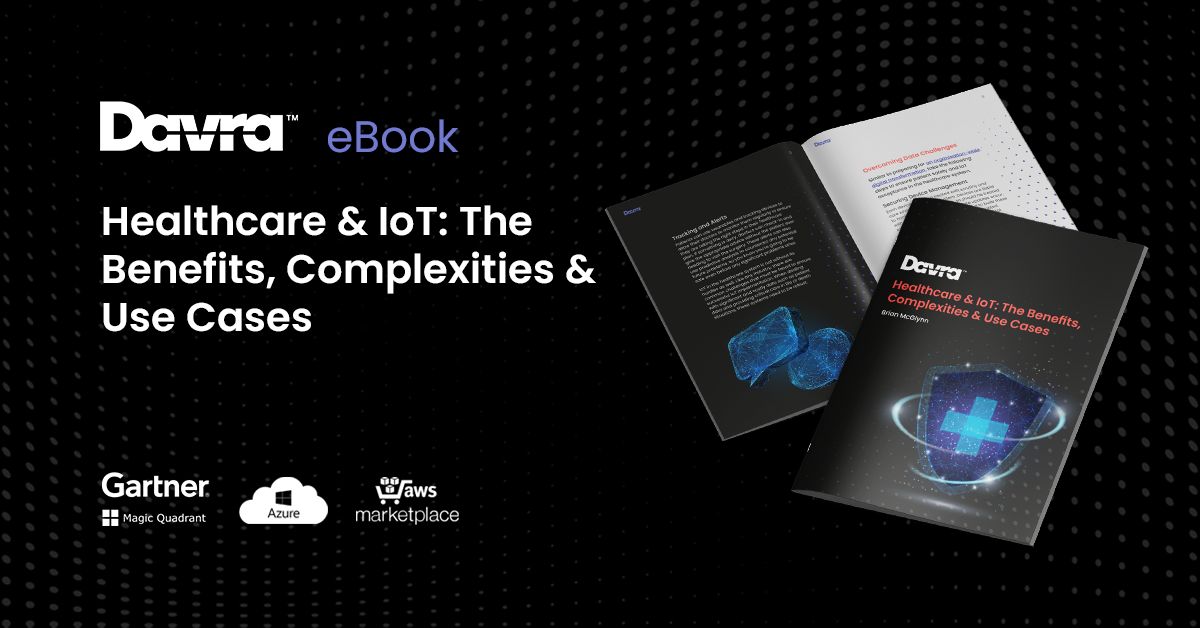IoT in Healthcare Use Cases eBook
Download Your Free IoT in Healthcare Use Cases eBook
Read More


As well as being in the midst of an industrial revolution, Industry 4.0, we also have an alarming climate change crisis on our hands. The two landscapes have always been vastly contrasted, as you could say one has caused another. When fossil fuels and industrial-scale agricultural farming became ever prominent in the 20th century, there was no thought given to the harmful effects this could have on our environment or climate change.
When most think of IoT, they think of tracking industrial assets to ensure they’re operating efficiently, or perhaps of the watch on your wrist that tracks your daily step count. Thankfully, IoT platforms can bring us so much more in terms of connectedness that we can harness for the greater good.
The United Nations Intergovernmental Panel on Climate Change (IPCC) describes an aggressive approach to reducing carbon emissions, which is being imposed by various government-led initiatives around the world. It can be difficult for organisations and households alike to get a grasp on how they can turn around their carbon footprint, as there are so many variables at play. By working with a carbon certified engineer or agency, you can measure your organisation’s greenhouse gas emissions to ensure you know where to cut down on emissions.
This in itself can be a difficult process, because once the high pollutants are assessed, you must then track them back to the processes that cause them in the first place. That’s a lot of assessing and analysing.
All new buildings must now meet a zero carbon footprint, as statistics show even if all greenhouse gases were to stop today, the world’s temperature would still increase by 2 degrees. This shows a lot of damage has already been done, and we still have a long way to go to eradicate these pitfalls. To ensure buildings stay at net zero carbon, they must be equipped with IoT sensors that can easily track energy consumption, lighting, generate renewable energy on-site and eliminate waste sustainably.
You might be thinking, but what about IoT sensors? Surely they can’t be 100% renewable or long-lasting? Work is now being carried out in various research centres such as Trinity College Dublin to find a solution to sensor life. One such solution is to develop sensors that, when they reach their end of life, they can simply dissolve into the ground or whatever they are held in, as it’s near impossible to collect all sensors once they’ve run out.
A report carried out by Ericcson also shows how IoT can bring about positive change within industry. It states that IoT use could reduce carbon emissions by up to 15% by 2030, and at the rate IoT adoption is heading for, this could well increase.
Reducing traffic congestion and unnecessary government spending can also have a positive impact on environmental issues. As governments will have more capital to plug back into the economy. This traffic reduction will be greatly helped by various smart city initiatives all over the world, from Singapore to Coogee Smart Beach in Australia. Smart traffic management and improving both road and rail networks for more efficient services will vastly improve greenhouse gas pollutants in urban environments. Electric vehicle usage is also on the increase, coupled with these smart traffic systems ensures cars are on the road for the minimum amount of time.
As IoT platforms and developments gain even more momentum, their effects will be seen rippling throughout industries as more and more companies take advantage of the opportunities and benefits. It’s obviously going to take a lot more than some simple analytics and tracking to bring down greenhouse emissions, and it will take many years for the full effects to be seen. But by embracing these technologies, we will see more uptake and demand for a sustainable future together combating climate change. If you would like more information on how your sector can do better to halve greenhouse emissions by 2030 using the powers of ICT, check out this report.
We are always keen to chat about how IoT can be developed in your company for the greater good. If this is something that you would like to pursue, please get in touch with us today.
Brian McGlynn, Davra, COO
Download Your Free IoT in Healthcare Use Cases eBook

Davra IoT is the only Industrial IoT Platform Available on AWS Marketplace
Read MoreThe Collaboration of Humans & Robots Has Created The Cobot
Read More